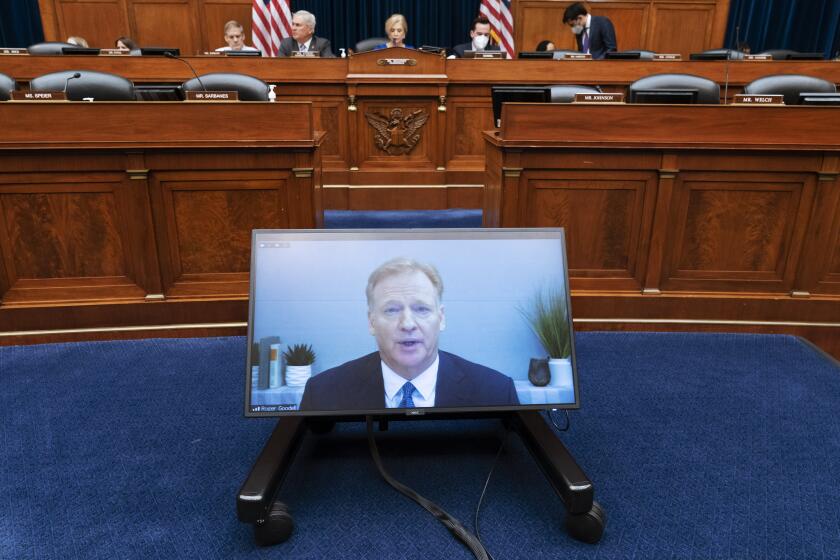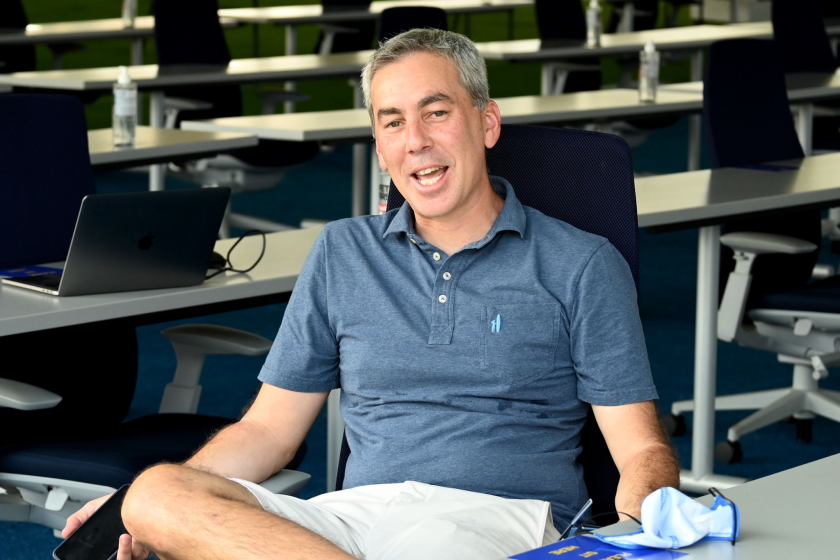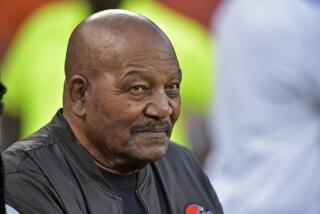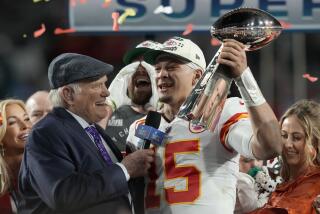Marlin Briscoe, first Black starting quarterback of the Super Bowl era, dies at 76
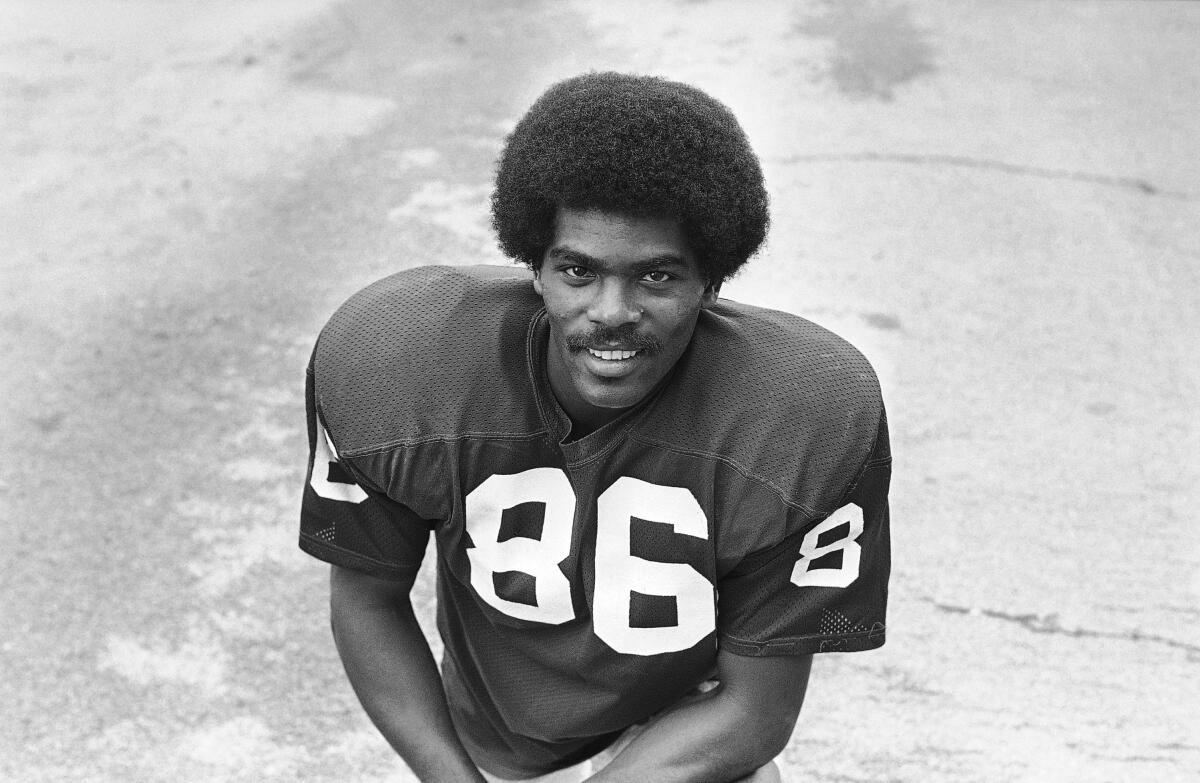
- Share via
Marlin Briscoe, who became the first Black starting quarterback in the American Football League more than 50 years ago, died Monday.
His daughter, Angela Marriott, told the Associated Press that Briscoe, 76, died of pneumonia at a hospital in Norwalk. He had been hospitalized with circulation issues in his legs.
Briscoe, an Omaha native, was a star quarterback for Omaha University before the Denver Broncos drafted him as a cornerback in the 14th round in 1968. Briscoe told the team he’d return home to become a teacher if he couldn’t get a tryout at quarterback. Denver agreed to an audition, and the 5-foot-10 dynamo nicknamed “The Magician” nearly rallied the Broncos to victory as a reserve against the Boston Patriots on Sept. 29 before earning the historic start on Oct. 6.
Examining what is ahead for the Commanders, owner Daniel Snyder and the NFL after House Oversight and Reform Committee hearing about sexual harassment allegations in the Washington organization.
“He’s made an immense contribution to the sport,” Marriott said. “I hope that he continues to get recognized for the contributions that he made. He was so proud of that achievement.”
Briscoe started five games that season. He was runner-up for AFL rookie of the year after passing for 1,589 yards and 14 touchdowns and rushing for 308 yards and three scores.
Denver didn’t give him a chance to compete for the quarterback job in 1969, so he asked to be released. He became a Pro Bowl receiver with the Buffalo Bills.
James Harris was Briscoe’s roommate with the Bills in 1969, and Briscoe helped Harris become the first Black quarterback in the AFL to open a season as a starter.
“It was at the time when Black quarterbacks were being denied, so you tried to make sure you were best prepared for the opportunity when it came,” Harris said. “I was a lot better off because Briscoe was my roommate.”
Hernández: Hated in St. Louis, Rams’ Kevin Demoff is L.A. hero aiming to build empire in Valley
Rams chief operating officer is considered a villain in St. Louis for moving the team back to L.A., but he’s been a hero here, turning team into champions and revitalizing NFL in Southland.
In 1974, Harris played for the Los Angeles Rams and became the first Black quarterback to win an NFL playoff game. He also was Pro Bowl MVP that season.
Meanwhile, Briscoe won two Super Bowls with the Miami Dolphins. He was a receiver on the 1972 Dolphins team that finished with a perfect season.
Briscoe never forgot the fact that he lost his starting job in Denver without explanation.
“It bothered him,” Harris said. “Although he made the switch, he was disappointed. In order to still accomplish what he did under those circumstances — frustrated, disappointed — to be focused enough to be a high achiever at another position took a special makeup, a special guy.”
Briscoe was inducted into the College Football Hall of Fame in 2016, and the Broncos named a diversity coaching fellowship in his honor before the 2021 season.
Well after his playing days, Briscoe remained outspoken about racial injustice. He was proud to have moved the needle in 1968, but he told the Associated Press in 2018 he was disappointed that many strides made in his day had been lost.
“I grew up in the ’50s and the ’60s, when all that stuff was rampant, but you knew where you stood,” Briscoe said. “Today, you thought that all those attitudes were nonexistent or filtered away to some degree, but with the Trump-isms, his philosophy has brought out of the woodwork that old-time thought process. That’s scary — it really is.”
More to Read
Go beyond the scoreboard
Get the latest on L.A.'s teams in the daily Sports Report newsletter.
You may occasionally receive promotional content from the Los Angeles Times.
